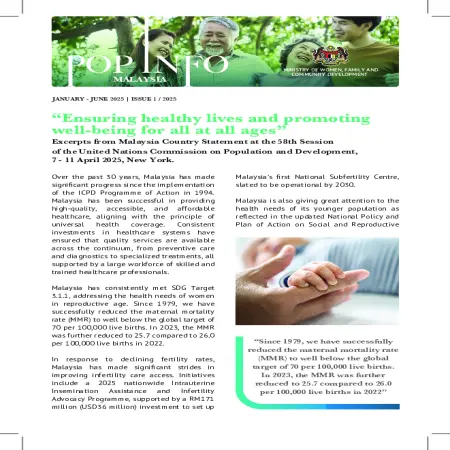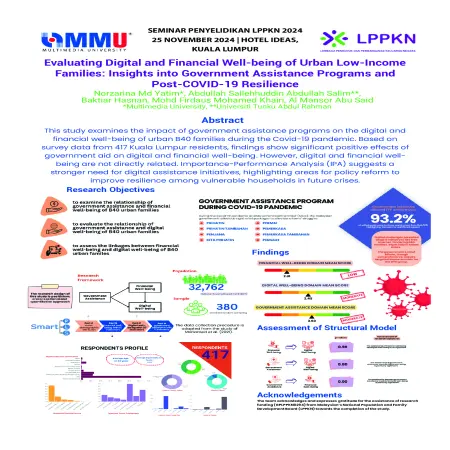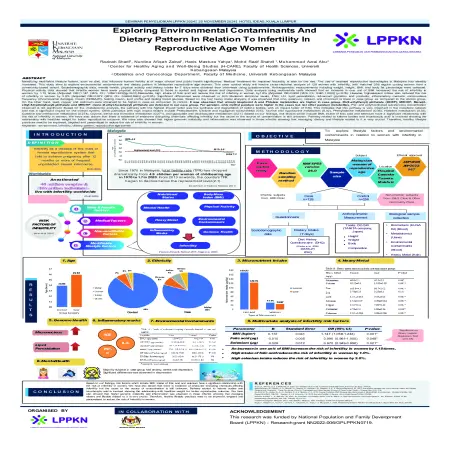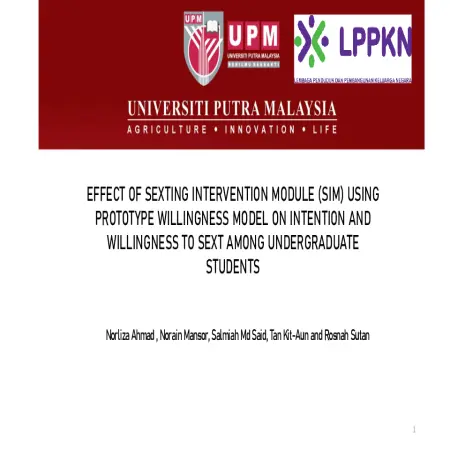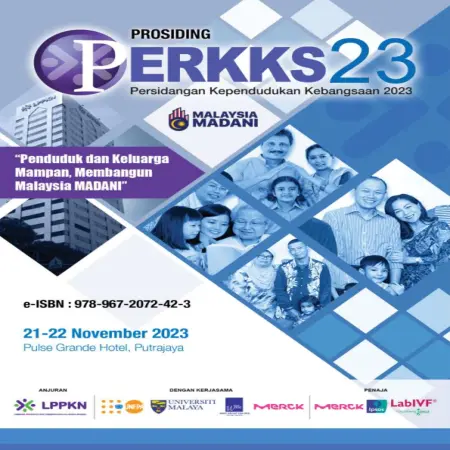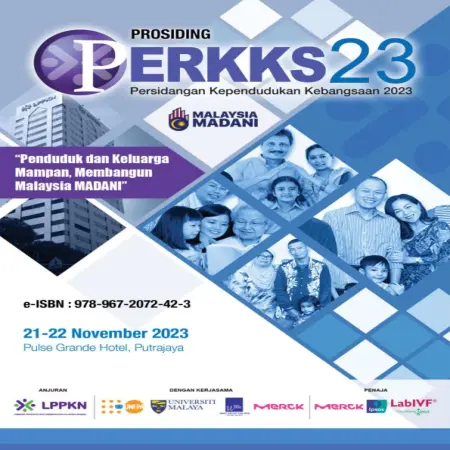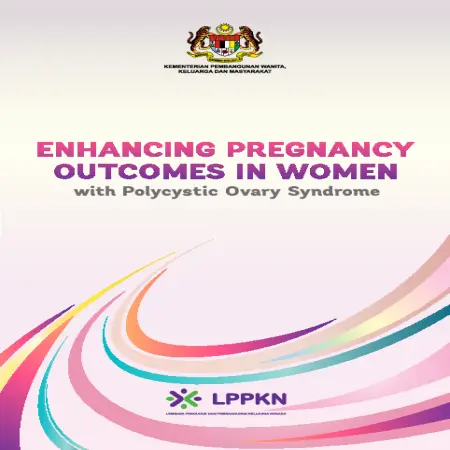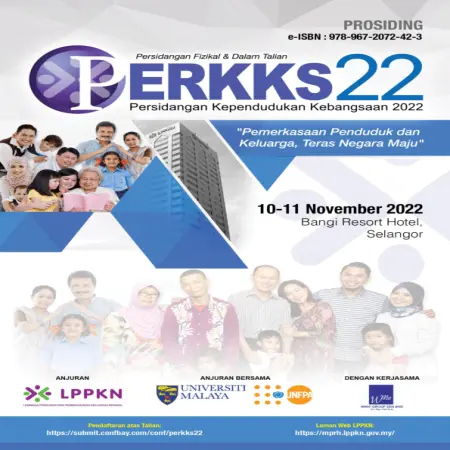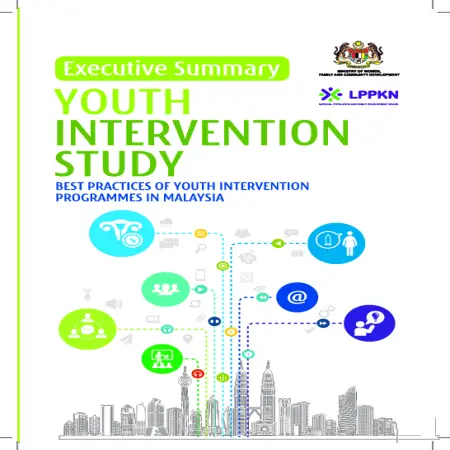Advanced Search
|
|
Ensuring healthy lives and promoting well-being for all at all ages
Item Type: Newsletter
Editor:
Year: 00/06/2025
Abstract: As Malaysia transitions to an aging society, the government is prioritizing the "Ageing Nation Agenda" within the 13th Malaysia Plan (RMK-13). This initiative is designed to create a robust social safety net for older persons, ensuring they live in an inclusive and supportive environment. To this end, the Government is developing the National Strategic Framework and Plan of Action for the Care Industry 2026-2030.
The National Agenda for a Healthy Malaysia (ANMS) is a key initiative to promote healthy lifestyles and create a health-conscious environment.
Our goal is to reduce the overall burden of diseases while promoting a culture of health and wellness within our communities.
|
|
|
|
|
|
Evaluating digital and financial well-being of urban low-income families: insights into government assistance programs and post-COVID-19 resilience
Item Type: Scientific Poster
Editor:
Year: 00/11/2024
Abstract: This study examines the impact of government assistance programs on the digital and financial well-being of urban B40 families during the Covid-19 pandemic. Based on survey data from 417 Kuala Lumpur residents, findings show significant positive effects of government aid on digital and financial well-being. However, digital and financial well-being are not directly related. Importance-Performance Analysis (IPA) suggests a stronger need for digital assistance initiatives, highlighting areas for policy reform to improve resilience among vulnerable households in future crises.
|
|
|
|
|
|
Exploring environmental contaminants and dietary pattern in relation to infertility in reproductive age women
Item Type: Scientific Poster
Editor:
Year: 00/11/2024
Abstract: Identifying modifiable lifestyle factors, such as diet, that influence human fertility is of major clinical and public health significance. Medical treatment for impaired fecundity is also on the rise. The use of assisted reproductive technologies in Malaysia has steadily increased. This study aims to explore environmental contaminants and dietary pattern in Malaysian reproductive age women. This case control study will involve cross-sectional analysis of 128 women with infertility, with matched 256 regular cycling women from a community-based cohort. Sociodemographic data, mental health, physical activity and dietary intake for 7 days were obtained from interviews using questionnaires. Anthropometric measurements including weight, height, BMI, and body fat percentage were collected. Physical activity data showed that infertile women have lower physical activity compared to those in control and higher stress and depression. Data analysis using multivariate tests showed that an increase in one unit of BMI increased the risk of infertility in women by 1.15 times [Adjusted OR=1.147 (95% CI= 1.059-1.243)])(p<0.01).Meanwhile, high intake of folic acid will reduce the risk of infertility in women by1.0% [Adjusted OR=0.990 (95% CI= 0.981-1.000)] (p<0.05). Likewise, highselenium intake also reduced the risk of infertility in women by 3.0% [Adjusted OR=0.972 (95% CI= 0.949-0.996)] (p<0.05). Significant differences were observed in Anti Mullerian Hormone levels, FSH, LH, lipid peroxidation, advanced glycation end products, inflammatory markers, micronucleus frequency (chromosomal damage), insulin (HOMA-IR), fasting insulin, lipid profile and fasting blood glucose. Based on the hair heavy metal analysis, it was observed that zinc, selenium, calcium and chromium is lower in case group as compared to the control group. On the other hand, lead, copper and cadmium were observed to be higher in case as compared to control. It was observed that urinary bisphenol A and Phtalate metabolites are higher in case group. Di-(2-ethylhexyl) phthalate (DHEP), MEHHP, Mono (2-ethyl-5-hydroxyhexyl) phthalate and MEOHP, mono (2-ethyl-5-oxohexyl) phthalate are detected in our case group. For paraben, only methyl paraben were higher in the cases but not other paraben metabolites. Per- and polyfluorinated substances) concentration observed is not significant. Based on the metabolomic analysis, the pathway with the highest impact factor was the synthesis and degradation of ketone bodies, with an impact factor of 0.60. This indicates that this pathway is very important in the metabolic network and has a significant impact on the overall system. Other pathways with high impact factors include Phenylalanine, tyrosine and tryptophan biosynthesis (0.5), Taurine and hypotaurine metabolism (0.42), Phenylalanine metabolism (0.35), Histidine metabolism (0.32), Cysteine and methionine metabolism (0.274), Glycine, serine and threonine metabolism (0.271), and glyoxylate and dicarboxylate metabolism (0.21). Based on our findings, risk factors which include BMI, intake of folic acid and selenium have a significant relationship with the risk of infertility in women. We have also shown that there is existence of endocrine disrupting chemicals affecting infertility but the cause or the source of contamination is still unknown. Pathway related to ketone bodies and tricarboxylic acid is involved showing the relationship with healthier weight for better reproductive outcome. We have also showed that higher genomic instability and inflammation was observed in those infertile showing that managing dietary and lifestyle related to it is very crucial. Therefore, healthy lifestyle practices need to be improved, targeted and personalized to reduce the risk of infertility in women.
|
|
|
|
|
|
Effect of Sexting Intervention Module (SIM) using prototype willingness to sext among undergraduate students.
Item Type: Conference or Workshop Item
Editor:
Year: 00/11/2024
Abstract: Sexting exchanging sexually explicit messages (texts, images, videos) via online. High sexting prevalence was used to rationalized the need for intervention. Implication of sexting are correlated with cyberbullying, sexual risk behavior, and mental health issues. Objectives of this research is to develop Sexting Intervention Module (SIM) using the Prototype Willingness Model, implement the intervention and evaluate the effectiveness of SIM on intention and willingness to sext among undergraduates in a public higher education institution in Melaka State. Research impact provide new evidence of effectiveness of Prototype Willingness Model (PWM) in reducing intention and willingness to sext. Previously PWM known to be effective in intervention that focus on prevention of smoking, alcohol drinking, sunless tanning, and sexual harassment. The effectiveness of PWM based intervention and animated videos supported future public health intervention toward digitalization of health education on sexting related topics among young adult. In community its increase awareness on sexting related issues and early prevention of negative implication of sexting.
|
|
|
|
|
|
Emosi dan kesihatan mental ibu bapa di fasa endemik covid-19: hasil penemuan kajian tinjauan pendapat umum LPPKN di Negeri Terengganu
Item Type: Book Section
Editor:
Year: 00/12/2023
Abstract: Post Covid-19 had an impact on family institutions mainly in terms of preparation of family members especially parents in facing life post-pandemic Covid-19. This study aimed to identify the emotional and mental health levels of parents in the endemic phase of Covid-19 in Terengganu.
|
|
|
|
|
|
Employability skill model development for people with disability (PWD): A Mixed-Methods Approach
Item Type: Book Section
Editor:
Year: 00/12/2023
Abstract: A disability of a human being does not define their identity and capabilities, the skillset does. Employability skills are one of the skills which are highly valued by employers and essential for effective workforce performance. The National Health and Morbidity Survey (NHMS) 2019 report stated that 11.1% of Malaysians above 18 years old who have disabilities in Malaysia are ready for working in industry. However, employers frequently disregard PWD chances due to 'red tape' and challenges in hiring PWDs to work in their company.
|
|
|
|
|
|
Enhancing Pregnancy Outcomes in Women with Polycystic Ovary Syndrome
Item Type: Research Report
Editor:
Year: 00/01/2023
Abstract: Polycystic ovary syndrome or known as polycystic ovarian syndrome (PCOS) is an endocrine disorder and one of the main causes of anovulatory infertility in women of reproductive age, which is 15 to 49 years (Balen et al., 2016). The main characteristics of women with PCOS are ovarian dysfunction, hyperandrogenism and polycystic ovaries (Balen and Michelmore., 2002). This syndrome is associated with metabolic syndromes such as obesity, insulin resistance, diabetes mellitus type 1 (Barthemess and Naz., 2014) and arteriosclerosis (Orio et al., 2004).
The general objective of this study is to identify the demographic characteristics, clinical and medical history, of PCOS sufferers as well as appropriate treatment methods among clients seeking fertility treatment at the LPPKN Subfertility Clinic.
This study is an experimental, case control study involving female clients who come to seek fertility treatment at the LPPKN Subfertility Clinic. The chosen location is LPPKN Headquarters, Kuala Lumpur. Every female client who attends needs to meet the patient selection criteria, namely a Malaysian couple, trying to conceive for more than a year and aged between 25 to 38 years old. Every patient who faces subfertility problem is divided into two groups, namely PCOS and no PCOS.
Patients who are eligible and agree to participate in the study have gone through at least five (5) series of appointments with medical officers and nurses. A total of 167 patients participated in this study with an average age of 30 years.
|
|
|
|
|
|
Examining the wellbeing of families during the acute phase of covid-19
Item Type: Book Section
Editor:
Year: 00/00/2022
Abstract: The COVID-19 pandemic and the subsequent movement restriction order (MCO) imposed an acute threat to the well-being of families caused by the threats linked to the social disruption including financial insecurity, caregiving burden, and confinement-related stress (e.g., crowding, changes to the arrangement, and routine). Also, many people have needed help even if they were not infected. This paper investigates the wellbeing of families in Malaysia during the pandemic.
|
|
|
|
|
|
Empowering single mothers through institutional support: lessons from single mothers in Sabah
Item Type: Article
Editor:
Year: 00/12/2021
Abstract: Life can be challenging for single mothers. They are viewed as the most vulnerable social groups in society who often lack educational attainment, skills and social networks; thus, limiting their opportunities to compete in the labour market. Consequently, single mothers struggle to achieve financial independence and to support the well-being of their family. To help single mothers build a better life, it is crucial to provide single mothers with solid institutional support programmes. This paper explores the extent to which the institutional support programmes designed for single mothers are in accordance with the needs and expectation of the single mothers in Sabah. The views obtained from the leaders of the single mother associations show that the support programmes are useful for single mothers; however, the programmes are still inadequate to lift them out of poverty. Suggestions for improvement of the institutional support programmes for single mothers are highlighted.
|
|
|
|
|
|
Executive Summary: youth intervention study: best practices of youth intervention programmes in Malaysia
Item Type: Research Report
Editor:
Year: 01/07/2020
Abstract: In the decades, Malaysia has undergone rapid economic, social and cultural changes which impacted not only the daily lives of its people but also their worldview and values. This is particularly so for young people, as excessive exposure to information from the social media, internet and pornography had inevitably influence their lifestyle and behaviour. The socio-cultural changes are likely associated with an increased rates of non-marital sexual activity, increased rates of sex partner change and increased rates of sexually transmitted infections (STIs). In 2005, the Ministry of Women, Family and Community Development through NPFDB introduced the PEKERTI Programme to be implemented at KafeTEEN adolescents centres. The programme provides reproductive health services, counseling services and education and skill building to promote a healthy life and inculcate positive attitudes and moral values among young people.
|
|
|
|





